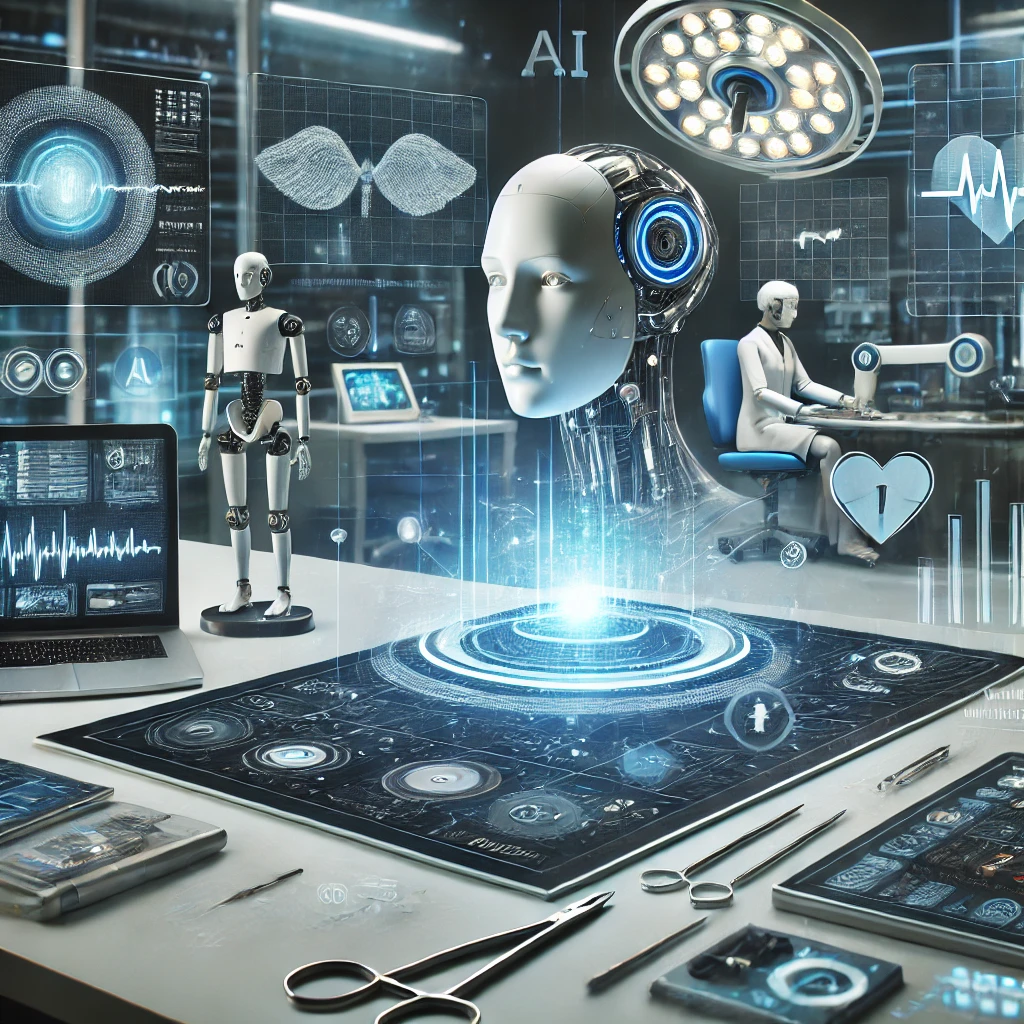
Artificial Intelligence in Healthcare: The Future of Medicine
Introduction: A New Era in Healthcare
The healthcare industry is undergoing a massive transformation, with Artificial Intelligence (AI) at the forefront. AI tools and emerging tech trends are reshaping the way we diagnose, treat, and manage diseases. With rapid innovations in AI, IoT (Internet of Things), and 5G, the future of medicine looks more promising than ever. In this article, we'll explore how AI is revolutionizing healthcare and its real-life applications in improving patient outcomes and experiences.
The Latest Innovations in AI and Their Real-Life Applications
AI in healthcare isn't just a buzzword—it's already being used to improve patient care, streamline operations, and enhance medical research. From AI-driven diagnostics to predictive analytics, the possibilities are endless. For example, AI tools can analyze medical images and detect conditions such as cancer with unparalleled accuracy. These innovations not only save lives but also reduce human error in critical situations.
AI in Diagnostics: A Game Changer
AI tools are being used to scan medical images and predict diseases like never before. With machine learning algorithms, AI can detect patterns in images, which might be too subtle for the human eye. This could make diagnoses faster, more accurate, and less invasive.
How IoT is Revolutionizing Healthcare
The Internet of Things (IoT) has already made its mark on various industries, and healthcare is no exception. By connecting medical devices and wearables, IoT provides real-time data to doctors, improving monitoring and decision-making. Imagine a patient with a chronic condition wearing a device that continuously tracks vital signs and sends updates to their doctor, allowing for immediate intervention when necessary.
Wearables and Remote Monitoring
Smartwatches and other wearable devices are now capable of monitoring everything from heart rate to blood sugar levels. These IoT-enabled gadgets allow for continuous, real-time data collection, empowering healthcare providers to make timely decisions based on precise data.
5G and Its Impact on Connectivity in Healthcare
5G is the next frontier in connectivity, and it promises to bring about a significant shift in healthcare. With ultra-low latency and lightning-fast speeds, 5G networks enable healthcare providers to access critical data and conduct remote surgeries in real-time. This improved connectivity is also key to the growth of telemedicine and AI-driven diagnostics.
Top 5G-Enabled Devices You Need to Know About
With the rise of 5G, new devices that leverage its power are becoming available. These devices allow healthcare professionals to transmit large medical data files quickly, conduct virtual consultations with patients, and perform high-resolution medical imaging without delay.
Innovative Gadgets in Healthcare
The healthcare industry is increasingly reliant on innovative gadgets to enhance patient care. From robotic surgery tools to AI-powered diagnostic systems, the latest gadgets are making it easier for doctors to perform tasks with precision and efficiency.
AI Tools for Daily Life: Making Healthcare More Accessible
Artificial intelligence is also improving how we manage our daily health routines. From apps that remind us to take medication to AI-powered fitness trackers that monitor physical activity, AI tools are making healthcare more accessible and personalized.
Smart Home Technologies: Transforming Healthcare at Home
Smart home technologies are also having a profound impact on healthcare. Devices like smart thermometers, air quality monitors, and smart beds are helping patients manage their health from the comfort of their homes. These gadgets not only help monitor a patient’s condition but also send alerts to healthcare providers in case of emergencies.
Sustainable Technology Innovations in Healthcare
Sustainability is becoming a key consideration in healthcare. The integration of sustainable technology innovations like energy-efficient medical devices, eco-friendly materials, and solar-powered hospitals is reducing the environmental footprint of the healthcare sector while also improving patient outcomes.
Practical Uses of Sustainable Technologies in Everyday Life
As the world moves towards more sustainable practices, healthcare is following suit. From reducing energy consumption in hospitals to utilizing biodegradable materials for medical supplies, sustainable technologies are playing a pivotal role in improving the overall health of the planet—and its people.
The Future of IoT in Healthcare
The future of IoT in healthcare is incredibly exciting. IoT will continue to drive innovation in how we collect and utilize data for patient care. With more connected devices, healthcare providers will be able to offer more personalized treatment and even predict potential health issues before they occur.
AI in Personalized Medicine
Personalized medicine is one of the most promising areas for AI in healthcare. AI algorithms can analyze genetic data and help doctors design tailored treatment plans that are more effective for each patient. This move towards precision medicine could revolutionize how we approach healthcare in the future.
Conclusion: Embracing the Future of Medicine with AI
As technology continues to evolve, AI is set to play an even more central role in the future of healthcare. From improving diagnostics and patient monitoring to driving sustainable innovations, AI is changing the face of medicine. With the continued growth of IoT, 5G, and other emerging tech trends, healthcare will only become more efficient, accessible, and personalized. The future of medicine is bright—and it's powered by AI.